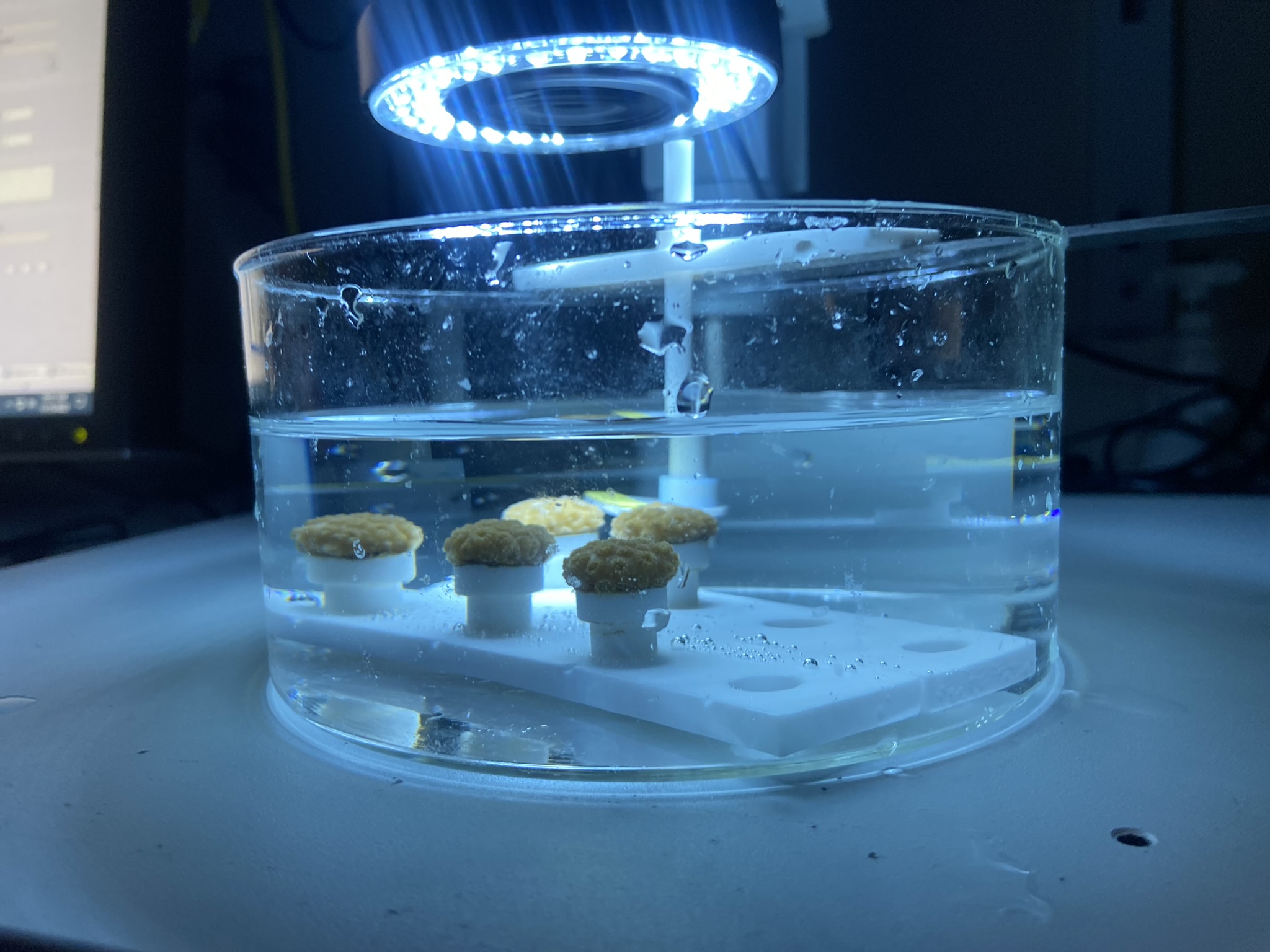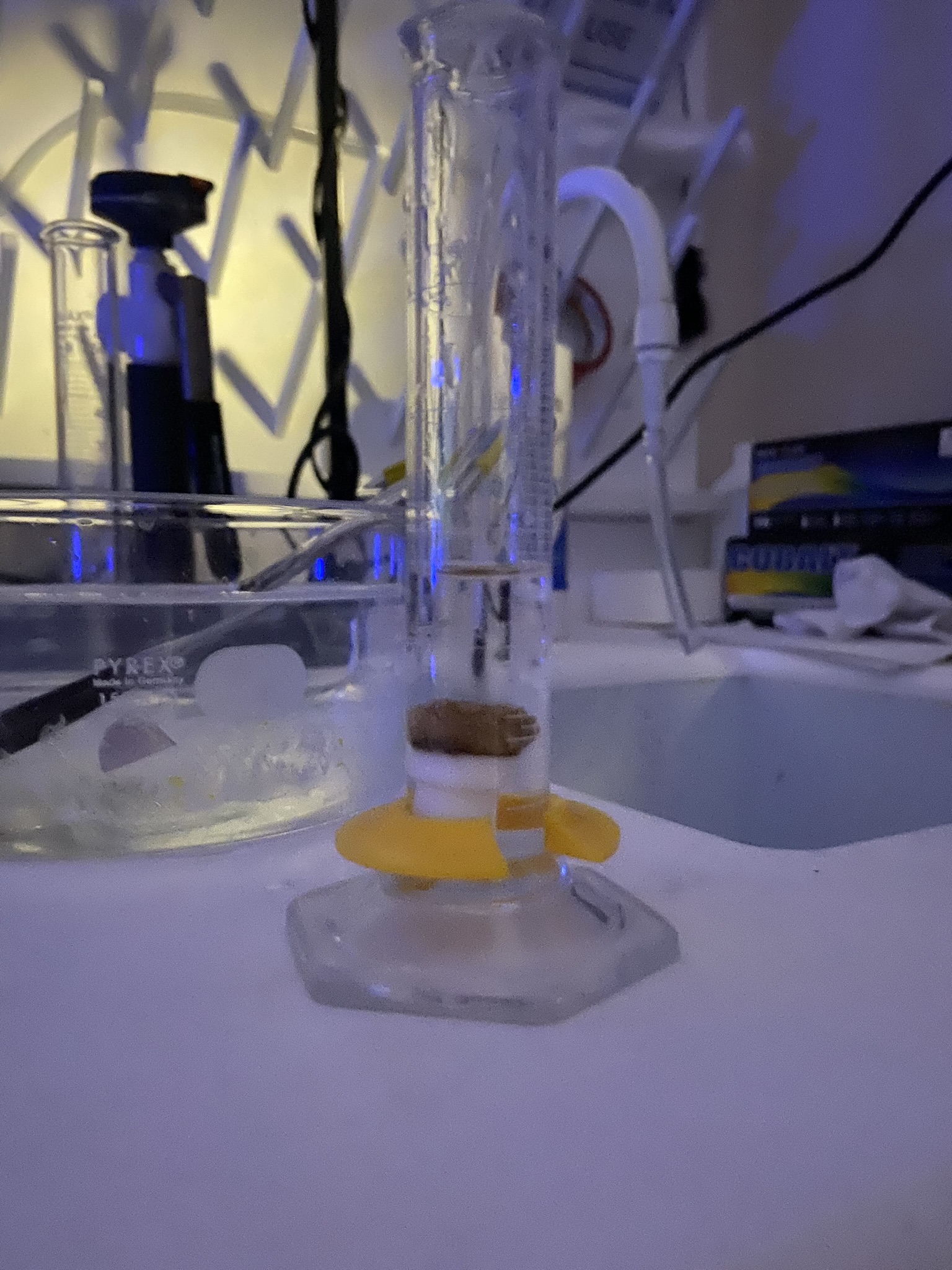
After a series of successful experiments on the effects of acute exposures to different turbidity treatments on coral species Orbicella faveolata and Acropora cervicornis, NCCOS scientists in the Key Species and Bioinformatics Branch’ (KSB) Coral Health and Disease Research Group have completed a three-month experiment to test how these same coral species are affected by long-term exposure to turbid conditions using sediment from the Port Everglades maintenance dredging operations (February 2021). The results of this project will be used by the National Marine Fisheries Service (NMFS) Protected Resources and the NMFS Habitat Conservation Divisions to assist in their consultations for impacts of Endangered Species Act-listed corals under section 7 or designated Essential Fish Habitat (EFH), and will assist Florida’s State Department of Environmental Protection in setting water quality criteria for turbidity that are protective of coral reefs.

The work addresses a management need identified by the State of Florida and NMFS Southeast Regional Office related to the effects of turbidity on coral. The state of Florida is interested in improving their understanding of impacts from turbidity and sedimentation on corals to improve best management practices during marine construction. NMFS is responsible for completing consultations under the Endangered Species Act and Magnuson-Stevens Act for coastal construction and dredging projects, including planned expansion of Port Everglades, which is surrounded by acres of sensitive coral reef habitat.
